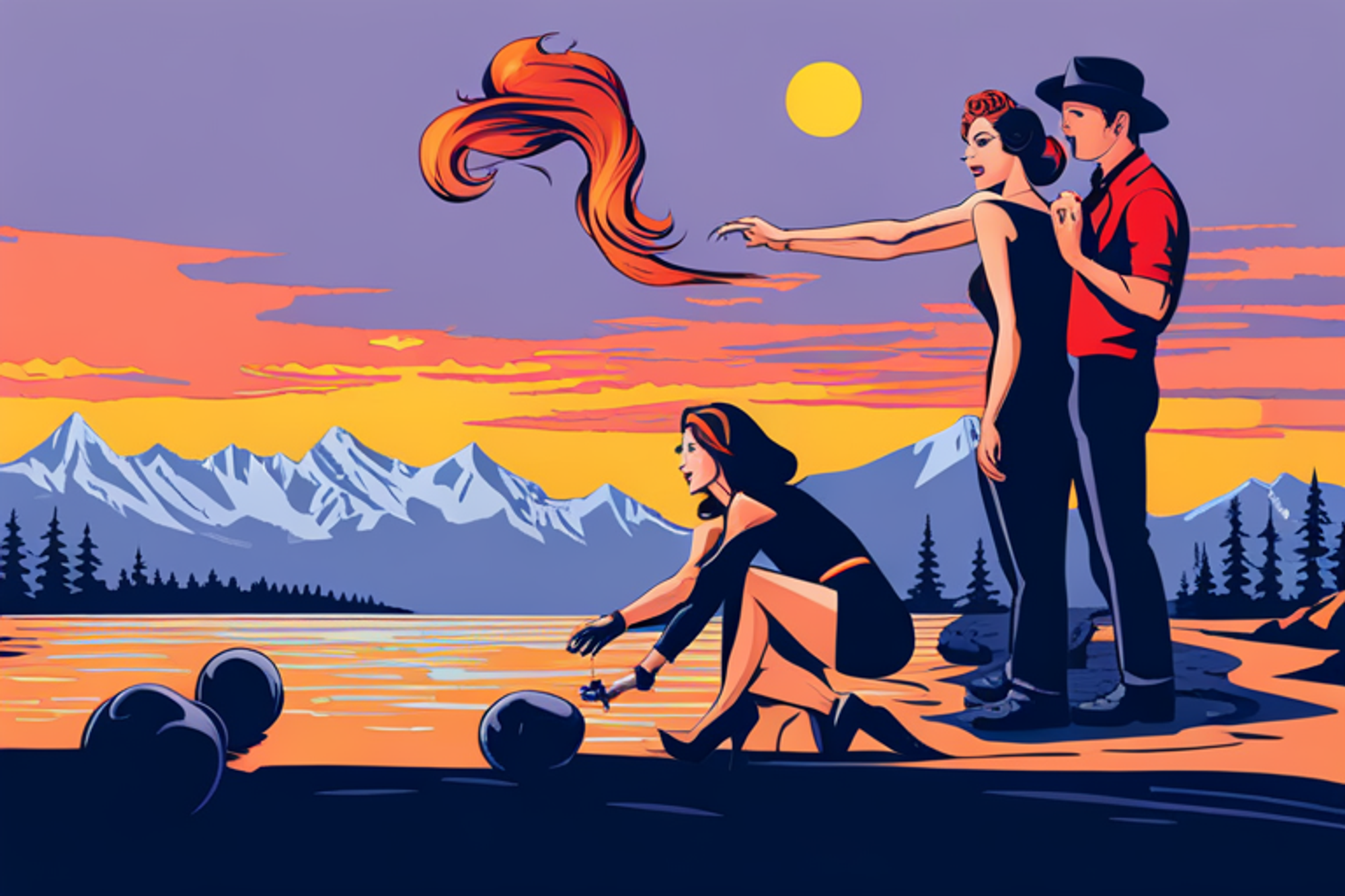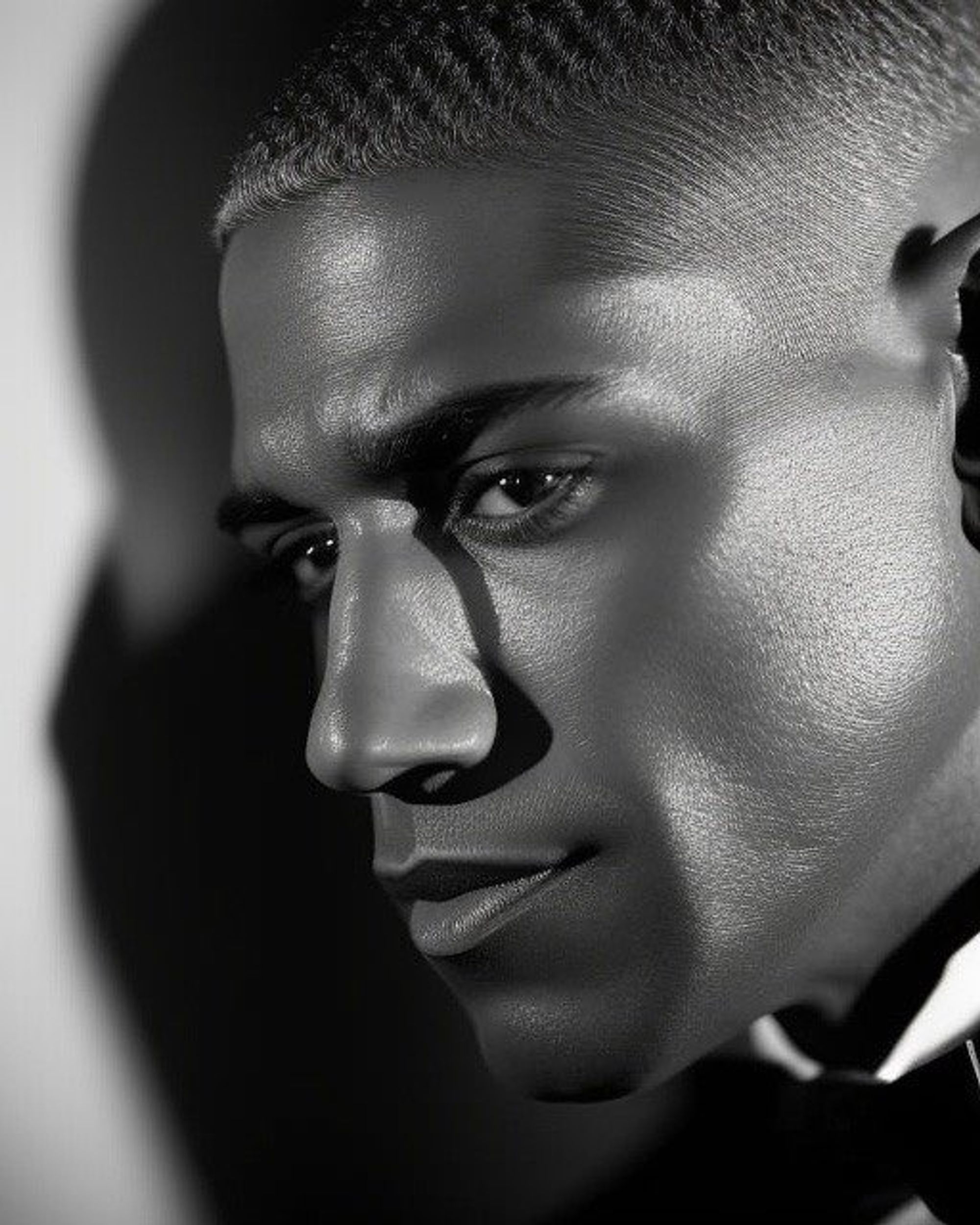
When one contemplates the tumultuous and diverse terrain of vintage 90s cinema, a standout ensnared in a genre of its own is the enthralling road journey tale, "True Romance." This cinematic gem, residing comfortably in the captivating realm of romantic crime dramas, has chiseled its seal in the annals of film history. Directed by the brilliant Tony Scott and backed by the ever-grotesque yet tantalizing wild streak of Quentin Tarantino's pen, the film serves as a daring deviation from the genre's more gloomy story arcs.
"True Romance" orchestrates an exhilarating story reminiscent of an unhinged rollercoaster ride, masterfully balancing love, violence, and Hollywood-style endings without losing its grip on reality. Our protagonists, the smitten misfit Clarence, and the resilient, lovable Alabama, annex the center stage as their wayward escapade unfolds. Their capricious trajectory provides an enchanting narrative born out of stolen cocaine, brimming with iconic characters, and punctuated with some of Hollywood's most unforgettable dialogues.

<markdown>
Taking a Left Turn from Tragic Endings
Taking a left turn from the morose, often tragic endings painted across the landscape of road movies, "True Romance" garners applause for its somewhat audacious venture into the territory of idealism. The story strips away the cloak of doom that typically trails the climax in its genre, replacing it with a flavor of true romanticism, breaking walls in a category saturated with morosity and grim finales.
Love Conquering All
This distinction is evident as the protagonists, despite a hail of bullets, crimes, and seemingly insurmountable odds, not only survive the labyrinth of chaos but also find their way to a tropical idyll. Quentin Tarantino's penned narrative and Tony Scott's directorial vision nurture this rare cinematic experience where love conquers all, a testament to their bold leap of faith in crafting a romantic crime drama with a gleaming sprinkle of optimism and an unusual Hollywood-style ending. Thus, in the annals of 90s cinema history, "True Romance" has distinguished itself from the commonplace narratives of road movies, inviting its audience to partake in the intoxicating concoction of love, violence, and a hopeful ending.

The ensemble cast of "True Romance" is no less than a brilliant constellation of actors who have etched their names in the history of cinema. Patricia Arquette, the woman behind the incredibly resilient character of Alabama, delivers a performance with a blend of raw vulnerability and strength. This layering that Arquette explores provides Alabama with the depth that galvanizes attention and earns accolades, becoming a beacon of striking female representation in a genre typically dominated by male characters. Beside her, Christian Slater, as the geeky Elvis-obsessed Clarence, provides the perfect counterpart, balancing his love-struck bewilderment with surprising but engaging cool credibility.
The talent pool doesn't stop there. The movie enlists major talents like veteran actor Dennis Hopper, who churns out an unforgettable performance in a limited yet significant portrayal of Clarence's estranged father, Clifford Worley. His steely confrontation with Christopher Walken's icy and menacing mob boss, Vincenzo Coccotti, is considered one of the most memorable scenes in film history. Clashes are filled with profound, piercing dialogues that leave an indelible mark on the viewer.
Gary Oldman, another enigma in the acting field, dons the unforgettable role of the pimp Drexl Spivey, delivering a chilling performance that enhances the drama and heart-stopping suspense. James Gandolfini, as Virgil, exudes menace, adding to the thrilling narrative, while Brad Pitt, in a minor yet unforgettable cameo as the stoner roommate, provides fleeting moments of comic relief amid the thrilling plot.
In conclusion, the star-studded cast of "True Romance" not only elevates the film to a pantheon of great cinema with their gripping performances but also enhances the narrative with unforgettable lines that continue to reverberate in popular culture years after the film's release. Each character is meticulously crafted, leaving a lasting impact that underscores the film's enduring appeal.
Unforgettable dialogues like 'Amid the chaos of that day, when all I could hear was the thunder of gunshots, and all I could smell was the violence in the air, I look back and am amazed that my thoughts were so clear and true, that three words went through my mind endlessly, repeating themselves like a broken record...' from Alabama's perspective illustrates the film's impeccable fusion of romance in chaos:
'You’re so cool, you’re so cool, you’re so cool.' These words have since been ingrained into the fabric of cinematic dialogues, testament to the film's enduring legacy.

Embedded in the narrative of "True Romance" lies a gem of a character, Alabama, portrayed with compelling tenacity by Patricia Arquette. This performance stands as a powerful indictment of the oft-diminished representation of strong women characters in the genre and era.
Alabama, a call girl with dreams and grit, breaks away from the usual damsel archetype and leans into a more resilient, multi-layered character rarely seen in romantic crime dramas of the 90s. Arquette's portrayal encompasses a wide spectrum, shifting deftly between tender, vulnerable moments and unshaken strength, embodying Alabama's resolve. Her singular gutsiness, warmth, and steadfastly romantic spirit make her one of the most enduring figures in the genre.
This complexity in female representation was a rather gallant stride in the Hollywood of the 90s. Not just a sidekick or a love interest, Alabama was an equal participant in the chaotic thrill ride, standing tall against adversity and emerging as a beacon of survival and triumph. Such representation went beyond mere surface-level empowerment; it reflected a shift in narrative landscape - an indication that the female character in a high-octane drama needed not be confined to sidelines, but could take the center stage, meet challenges head-on, even in the face of perilous adversity.
Hence, Patricia Arquette's Alabama in "True Romance" was not merely a character, but a statement against the norm - a testament to the seismic changes that were just around the corner in the industry. Both in its inception and eventual impact, it was a confidence note towards the portrayal of strong, resilient women in cinema, resonating well into the present day, thereby amplifying the relevance and enduring appeal of "True Romance."
<markdown>
"True Romance": A Captivating Romantic Crime Drama
Q: What genre does "True Romance" fall under?
A: "True Romance" is classified as a romantic crime drama.
Q: Who directed "True Romance"?
A: "True Romance" was directed by Tony Scott.
Q: Who wrote the screenplay for "True Romance"?
A: The screenplay for "True Romance" was written by Quentin Tarantino.
Q: How does "True Romance" differ from other road movies?
A: "True Romance" stands out from other road movies by deviating from the typical tragic or gloomy story arcs and instead infusing it with a flavor of true romanticism and a hopeful ending.
Q: What is unique about the romance in "True Romance"?
A: The romance in "True Romance" is unconventional as it blossoms amidst a hail of bullets, crimes, and insurmountable odds, ultimately leading to a tropic idyll.
Q: What is notable about the ensemble cast of "True Romance"?
A: The ensemble cast of "True Romance" is notable for its exceptional performances by seasoned actors who bring depth and nuance to their characters. Notably, Gary Oldman delivers a chilling portrayal of the pimp Drexl Spivey, while James Gandolfini exudes menace as Virgil. Brad Pitt's cameo as the stoner roommate provides moments of comic relief, and Patricia Arquette shines as Alabama, a resilient and multi-layered character. Each actor's contribution adds to the film's enduring appeal and solidifies their place in cinema history.

